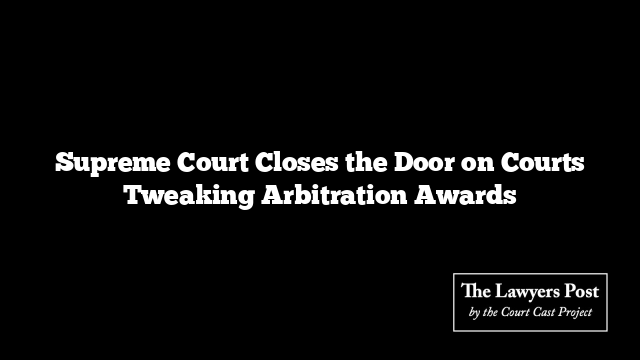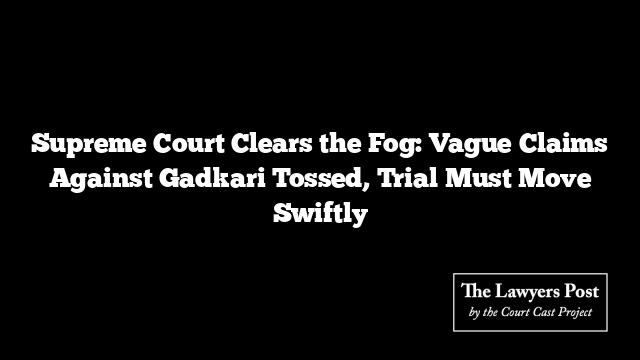In a powerful dissent that cuts against the grain, Justice KV Viswanathan declared that the Supreme Court cannot stretch its powers under Article 142 to tweak arbitral awards — no matter how tempting the cause of “complete justice” might be.
Breaking ranks with the majority on a Constitution Bench, Justice Viswanathan warned that using Article 142 this way would tear apart the very architecture of the Arbitration and Conciliation Act, 1996. Courts, he said, are meant to set aside arbitral awards when necessary — not revise or rewrite them.
“The authority under Article 142 cannot be wielded to outflank substantive law,” he wrote, offering a sharply different vision from his colleagues who felt limited modification might sometimes be justified.
The Constitution Bench, led by Chief Justice Sanjiv Khanna and including Justices BR Gavai, PV Sanjay Kumar, and Augustine George Masih, largely agreed that courts can — in narrow circumstances — modify awards: to fix typos, adjust post-award interest, or sever bad parts from good ones. They also left a cautious door open for Article 142 to be used in rare cases.
But Justice Viswanathan wasn’t having it.
He insisted that the Arbitration Act draws a hard boundary: Section 34 allows setting aside an award on strict, limited grounds — like fraud or jurisdictional errors — but never invites the courts to remodel the award. Modification, he argued, is a fundamentally different beast than annulment, and Parliament has repeatedly chosen not to grant courts that beast.
Despite multiple amendments to the Act — in 2015, 2019, and 2021 — lawmakers have steadfastly refused to empower courts to modify awards. Reports from expert committees floated the idea, but Parliament didn’t bite. That silence, Justice Viswanathan emphasized, speaks volumes.
“To read into Section 34 a power to modify is not merely judicial adventurism; it is judicial legislation,” he warned.
He also took aim at the idea that courts could lean on “inherent powers” under the Civil Procedure Code to tweak awards. That would smash directly into the statute’s tight boundaries, he said, and when the legislature speaks clearly, courts are bound to listen — not improvise.
He drew a sharp line between severance — cutting off a rotten part of an award when it’s cleanly separable — and modification, which alters the award’s content. The former, he said, is permitted; the latter is forbidden.
Interest rates, factual conclusions, contractual terms — all of it, Justice Viswanathan maintained, must be left alone unless the award itself is being set aside altogether. Courts tinkering with post-award interest under Section 31(7)(b)? Also a no-go in his view. Instead, issues with interest should be referred back to the arbitrator, preserving the sanctity of the arbitral process.
At the heart of his dissent was a fierce defense of party autonomy — the foundation of modern arbitration. Parties choose arbitration to escape the procedural tangles of national courts; they can’t later plead for court-style corrections when the results displease them.
“The parties, by opting into arbitration, have accepted both its advantages and its limitations. Courts cannot retrofit the process to meet changing litigant appetites,” he cautioned.
The dissent didn’t just look inward. Justice Viswanathan pointed to global practice, noting that countries like the UK, Singapore, New Zealand, and Kenya have written clear laws allowing limited modification of awards. In India, no such legislative blessing exists — and pretending otherwise, he argued, could create international headaches.
If an Indian court rewrote an arbitral award, he explained, its enforceability abroad — particularly under the New York Convention — could be thrown into serious doubt. Foreign courts might see the modified judgment as something entirely different from the original award, opening a Pandora’s box of challenges.
Justice Viswanathan’s dissent, meticulous and unsparing, stands as a caution: that in trying to bend the arbitration framework toward “justice,” courts might end up fracturing it instead.





